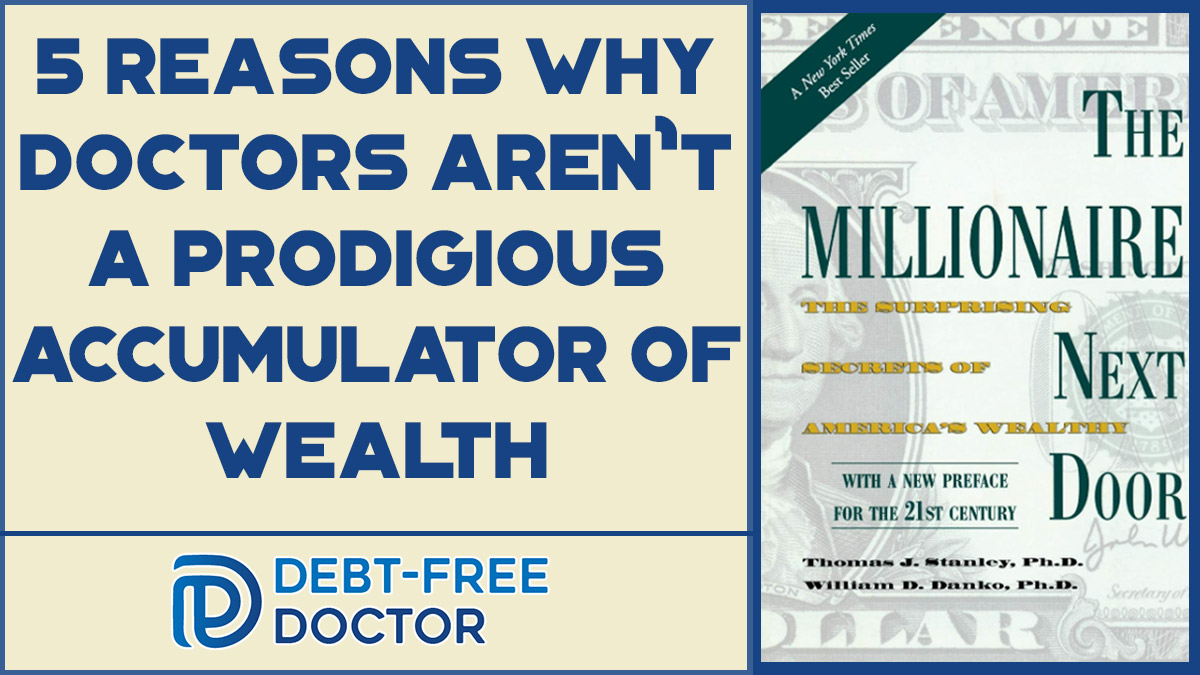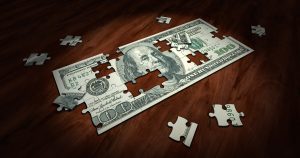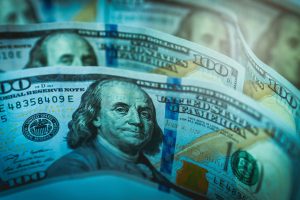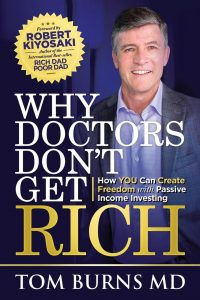I first heard the term, “prodigious accumulators of wealth” in 1996 while reading one of the most popular finance books ever written by Dr. Thomas Stanley, The Millionaire Next Door.
If you haven’t read it then head over to Amazon and get it now.
Even though some of the statistics might be outdated, the basic wealth building principles collected while surveying thousands of millionaires are still relevant today.
I’ve always enjoyed reading about how millionaires have obtained their wealth in books such as:
When The Millionaire Next Door was published in the late ’90’s, the authors stated that being “rich” was having at least a million dollar net worth.
Fast forward to today and research claims that you need an average net worth of $2.3 million to be considered “rich.”
What about you? Do you consider yourself “rich”?
If not, don’t fear.
Here’s 7 characteristics of a typical millionaire next door to get you going in the right direction…
Don’t Miss Any Updates. Each week I’ll send you advice on how to reach financial independence with passive income from real estate.
Sign up for my newsletter7 Characteristics of a Millionaire Next Door
The book’s authors discovered that out of thousands of American millionaires surveyed, the same seven characteristics to wealth building kept popping up.
These included:
#1 They live well below their means.
#2 They allocate their time, energy, and money efficiently in ways conducive to building wealth.
#3 They believe that financial independence (FI) is more important than displaying high social status.
#4 Their parents did not provide economic outpatient care.
#5 Their adult children are economically self-sufficient.
#6 They are proficient in targeting market opportunities.
#7 They chose the right occupation.
Let’s focus on the first three for our discussion today.
In The Millionaire Next Door, the authors stated that if someone has the correct mindset about money then they could become a prodigious accumulator of wealth (PAW).
Related article: Secrets Of The Millionaire Mind Book Summary
This is a personal finance formula to determine the efficiency of wealth accumulation. Let’s take a closer look at what goes into the makings of a PAW.
“How do you become wealthy? It’s seldom luck or inheritance or education or even intelligence that builds fortunes. Wealth is more often the result of hard work, perseverance, and, most of all, self-discipline.”
— Dr. Thomas J. Stanley, PhD
What’s a Prodigious Accumulator Of Wealth?
In order to figure out if you’re in the PAW category or not, you must first use the author’s formula to determine your household’s net worth.
Millionaire Next Door Formula
During their time surveying people while writing the book, the authors created a simple rule of thumb to determine their wealth:
Multiply your age times pretax annual household income. Divide this number by 10. This is what your actual net worth should be.
Example
Dr. B is a 39 year old pediatrician and makes $195,000 a year.
He would multiply $195,000 x 39 = $7,605,000
Dividing by ten, his net worth should be $760,500
PAW vs UAW
Once you obtain your expected net worth (ENW), then you’re ready to move on to the next part of the calculation.
A prodigious accumulator of wealth has a net worth over 2x as large as the expected net worth, and an under accumulator of wealth (UAW) has a net worth of less than half of the ENW.
PAWs typically have a minimum of 4x the wealth accumulated by UAWs.
Revisiting our example above, Dr. B’s net worth/wealth should be approximately twice the expected value or more for his income/age cohort, or:
$760,500 x 2 = $1,521,000
If his level of wealth is one-half or less than expected for all those in his income/age category then he would be classified as a UAW.
What About Doctors?
There’s been much criticism about this formula especially regarding doctors and other professionals that start out later in their careers with high amounts of debt.
Maybe someone could develop a doctor-specific formula that could factor in:
- average indebtedness coming out of school
- current age
- prior careers
- inheritances
Here’s a formula the White Coat Investor came up with over 10 years ago:
Expected Net Worth of a Doctor (ENWD) = Average Post-Residency Income X Years Since Training X 0.25
If we were to use his formula:
A family doctor averaging $150,000 a year for 10 years since leaving residency should have a net worth of $375,000.
ENWD = $150,000 x 10 x 0.25
$375,000
An orthopedist averaging $500,000 for 5 years since leaving residency should have a net worth of $625,000.
ENWD = $500,000 x 5 x 0.25
$625,000
Doctors, PAWs & UAWs
Most physicians and dentists earn more than four times the income of the average American household.
- Average physician (PCP) salary: $243,000
- Average dentist salary: $238,000
But not surprisingly, The Millionaire Next Door found that doctors typically aren’t very good at accumulating wealth.
Their research showed that for every one doctor in the PAW group, there were two in the UAW category.
I’d be willing to guess that it’s higher now over 20 years later.
Why do they lag so far behind on the wealth scale?
Here’s what I think….
5 Reasons Why Most Doctors Aren’t a PAW
Typically when I speak with new Passive Investors Circle members that have zero savings, most:
- live ABOVE their means
- allocate their time to spending their wealth
- don’t understand the importance of FI, only care about what others think about their status
Here are the top 5 reasons why I feel that most doctors don’t become a prodigious accumulator of wealth:
#1 They start off in a hole later in life
Both medical and dental school costs are on the rise. Couple that with the amount of time it takes to obtain a degree and most docs start off in a LARGE financial hole later in life.
If they’re not focused and diligent enough to tackle their debt while living below their means, then they’ll never get ahead financially.
#2 Focus on social status
Many doctors feel that their high income means their rich.
Often, they fall prey to Parkinson’s Law which states that “expenses will rise to meet income.”
So the more they make, the more they’ll spend.
This is what eventually goes on to form the “golden handcuffs” giving them a false sense of wealth and security early in their career.
This plus focusing on their social status by trying to “keep up with the Joneses” with expensive homes and cars eventually makes them feel trapped.
#3 No time for what “really” matters
I recently spoke with a physician that has been practicing for 14 years. He didn’t know how much money he had saved for emergencies or what his financial situation as his advisor was keeping him in the dark.
He told me he was “too busy” treating patients to ever think about it. (too busy to focus on one of the most important topics??)
I guarantee you that if you’re “too busy” to focus on your money, then it could result in a bad financial position down the road.
Dr. Stanley found that those that dedicate at least one hour each month to family finances had a much better chance of reaching PAW status.
#4 Think they can handle everything themselves
I get that becoming a doctor takes time, self-sacrifice and dedication. We get so used to the long hours of studying that we focus less on relying on others for anything.
“Plans fail for lack of counsel, but with many advisers they succeed.” – Proverbs 15:22
Unfortunately this can carry over into our financial life affecting our retirement savings once the big checks start rolling in.
Surrounding yourself with trusted advisers is one of the keys to solving the wealth equation.
It’s also important to surround yourself with positive people who move you in the direction you want to go, and it’s equally important to AVOID negative people.
#5 Put too much hope in selling their practice
There’s two things that I don’t factor into my financial future:
- social security
- selling my practice
Too many doctors treat the potential sell of their practice like “winning the lottery” but many times a buyer can’t be found.
If you’re able to then great, but don’t count on it. Instead treat it as “lagniappe” and focus on developing the seven characteristics of a millionaire.
Ready To Become a PAW?
Join the Passive Investors Circle today.
Join the Passive Investors Circle






